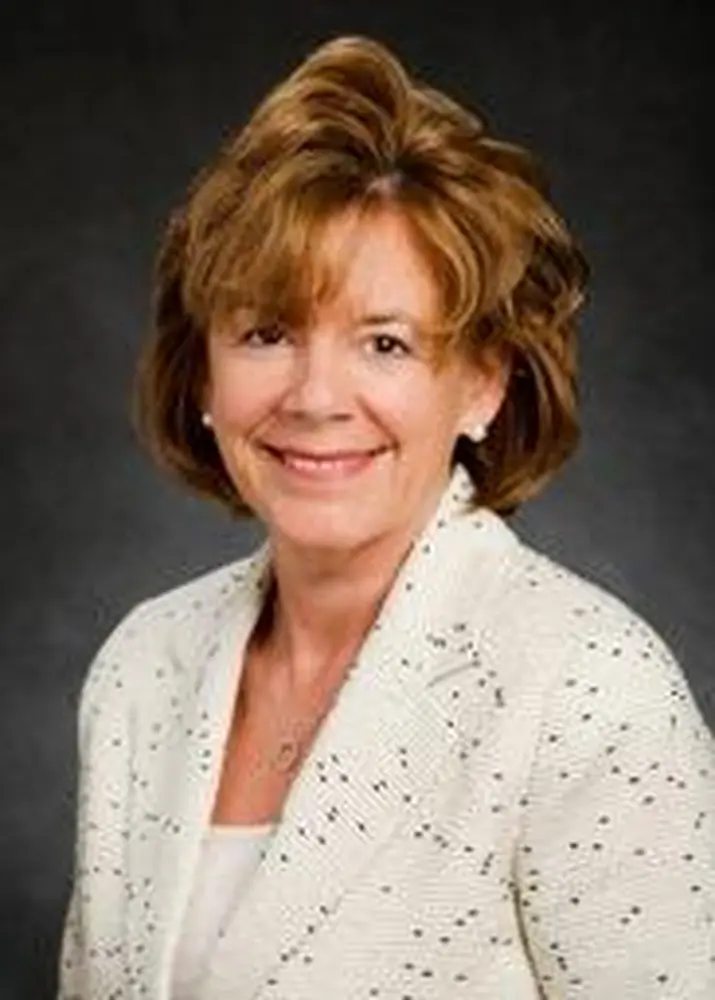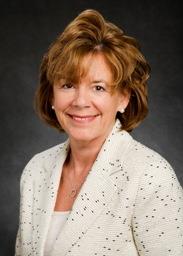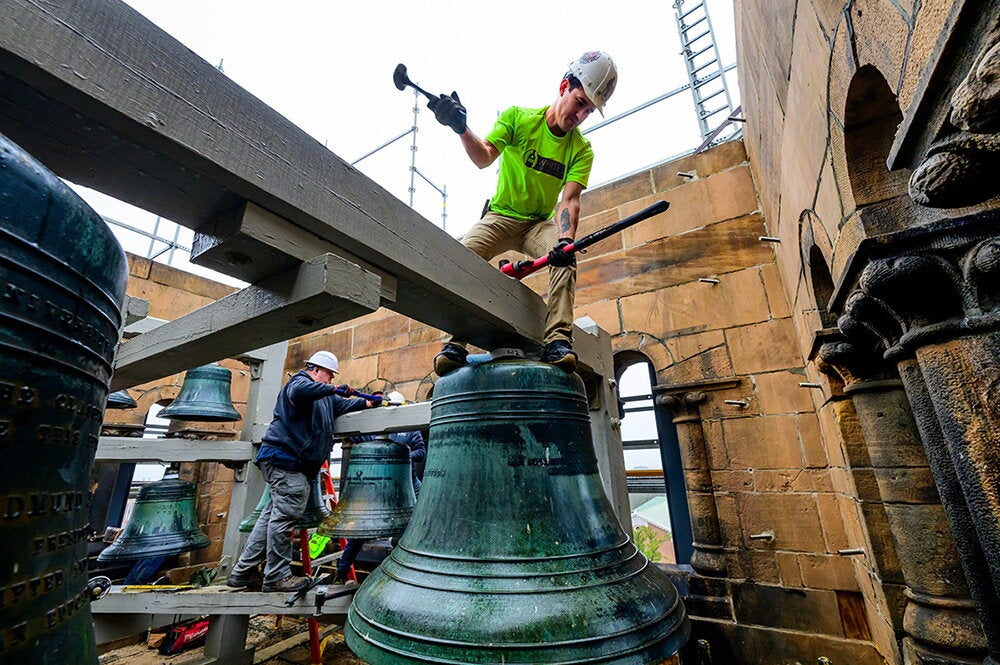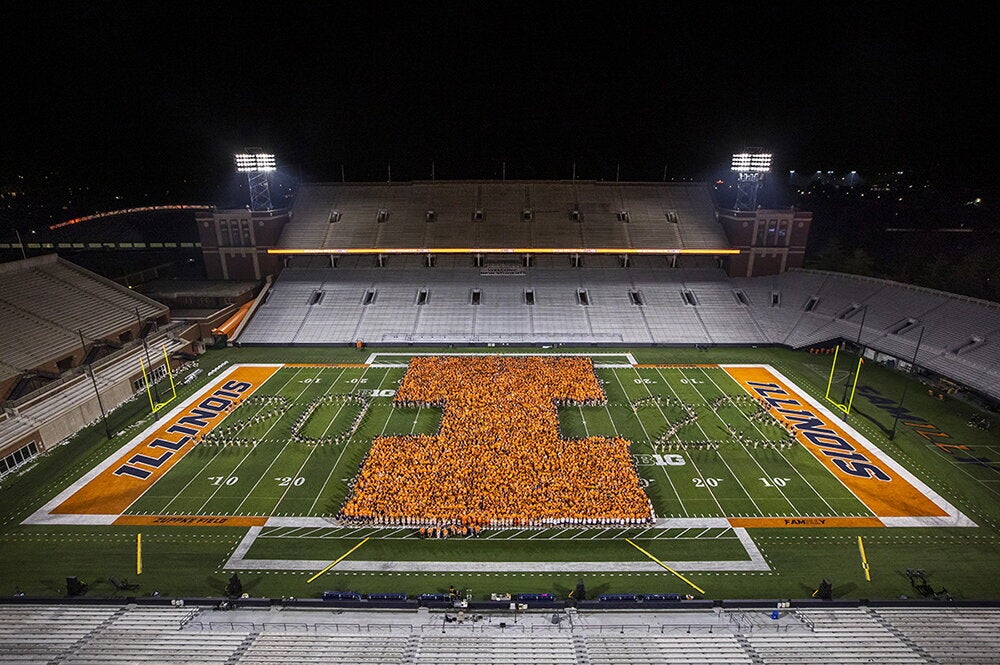

A professor of communication and executive vice provost for faculty and academic affairs at the University of Illinois has been selected to serve as the next Harry E. Preble Dean of the College of Liberal Arts and Sciences.
Barbara J. Wilson, who joined the University in 2000, will begin her new role pending approval by the Board of Trustees. She will assume her duties from Brian Ross, who has served as interim dean of the college since former Dean Ruth Watkins resigned from the post in 2013.
“I’m supposed to say, ‘I look forward to serving in this pivotal campus role,’” she says, “and while that’s true, it really feels more like I’m coming home. I have spent my academic career supporting and celebrating the merits of a liberal arts education at a major research university, and I can’t wait to continue doing that as dean.”
Wilson, the Kathryn Lee Baynes Dallenbach Professor of the Department of Communication, has worked in the provost’s office since 2009, when she was named vice provost for academic affairs. In 2012, she was named executive vice provost for faculty and academic affairs, providing campus leadership on strategic and financial planning, faculty hiring, training and promotion, and innovative academic programs.
She led several of the provost’s office’s major accomplishments, including establishing the Office of Undergraduate Research, strengthening leadership development for executive officers, refocusing the Targets of Opportunity Program (an initiative to hire underrepresented faculty), and leading the design of a cluster hiring program.
“Barb’s contributions as an administrator, her knowledge of the college, of this university, and of higher education, as well as her stellar academic contributions, make her an ideal match for the LAS deanship,” says Ilesanmi Adesida, vice chancellor for academic affairs and provost of the University of Illinois. “No task has been too large or too difficult for Barb. She has successfully tackled every project that has been assigned to her and shown a remarkable ability to pivot to a broad range of responsibilities.”
In making the announcement, Adesida also expressed “deep gratitude” for the service of Ross as interim dean.
Wilson arrived on campus as a professor of communication, and she served as head of the Department of Communication from 2002 to 2008. Wilson led an initiative to revamp the curriculum and created program tracks to help students translate liberal arts curriculum into career interests. The department’s enrollment grew by 40 percent under her leadership; the faculty grew by 20 percent.
Prior to Illinois, Wilson worked as a professor of communication at the University of California, Santa Barbara, from 1988 to 2000. During that time she served as director of graduate studies for the Department of Communication, from 1992 to 2000. She earned her bachelor’s degree in journalism and her master’s degree and PhD in communication arts from the University of Wisconsin-Madison in 1979, 1982, and 1985, respectively. She took her first faculty position at the University of Louisville, from 1985 to 1988.
Wilson has served on numerous committees, boards, and councils during her time at Illinois, including the College of LAS Executive Committee, Illinois Humanities Committee, Diversity Advisory Committee, Campus Strategic Planning Committee, and others with campuswide impact.
The most pressing issue facing LAS, and the campus generally, she says, is maintaining excellence in a period of limited funding.
She says she will work to better link students and faculty members across disciplines in creative and research activities, and she will keep up her work to attract and retain a top-level and diverse faculty. Meeting those goals will take alternative revenue streams, including a greater emphasis on alumni outreach and fundraising, she says.
A liberal arts education has never been more important, Wilson adds.
“When employers are asked about the skills they are looking for in a college graduate, a good number of those skills are at the heart of a liberal arts education,” she says. “[They’re looking for] the ability to write and speak well, the ability to think clearly about complex problems, the ability to be creative and innovative in solving problems, and the ability to work within teams, especially with people from diverse backgrounds.”
Wilson’s own academic research focuses on the social and psychological effects of media, particularly on youth. Recent research projects have focused on preschoolers’ attachment to media characters, educational television programming for children, and children’s attraction to media violence. She is co-author of Children, Adolescents, and the Media (2002; second edition, 2009; third edition, 2014) and three book volumes of the National Television Violence Study.
She co-edited the Handbook of Children, Media, and Development (2008), and has published more than 100 scholarly articles, chapters, and technical reports on media effects and their implications for policy. She serves on the editorial boards of four academic journals, including Media Psychology and the Journal of Media and Children. Wilson has served as a research consultant for Nickelodeon, the National Association of Television Program Executives, Discovery Channel Pictures, and the Centers for Disease Control and Prevention.


